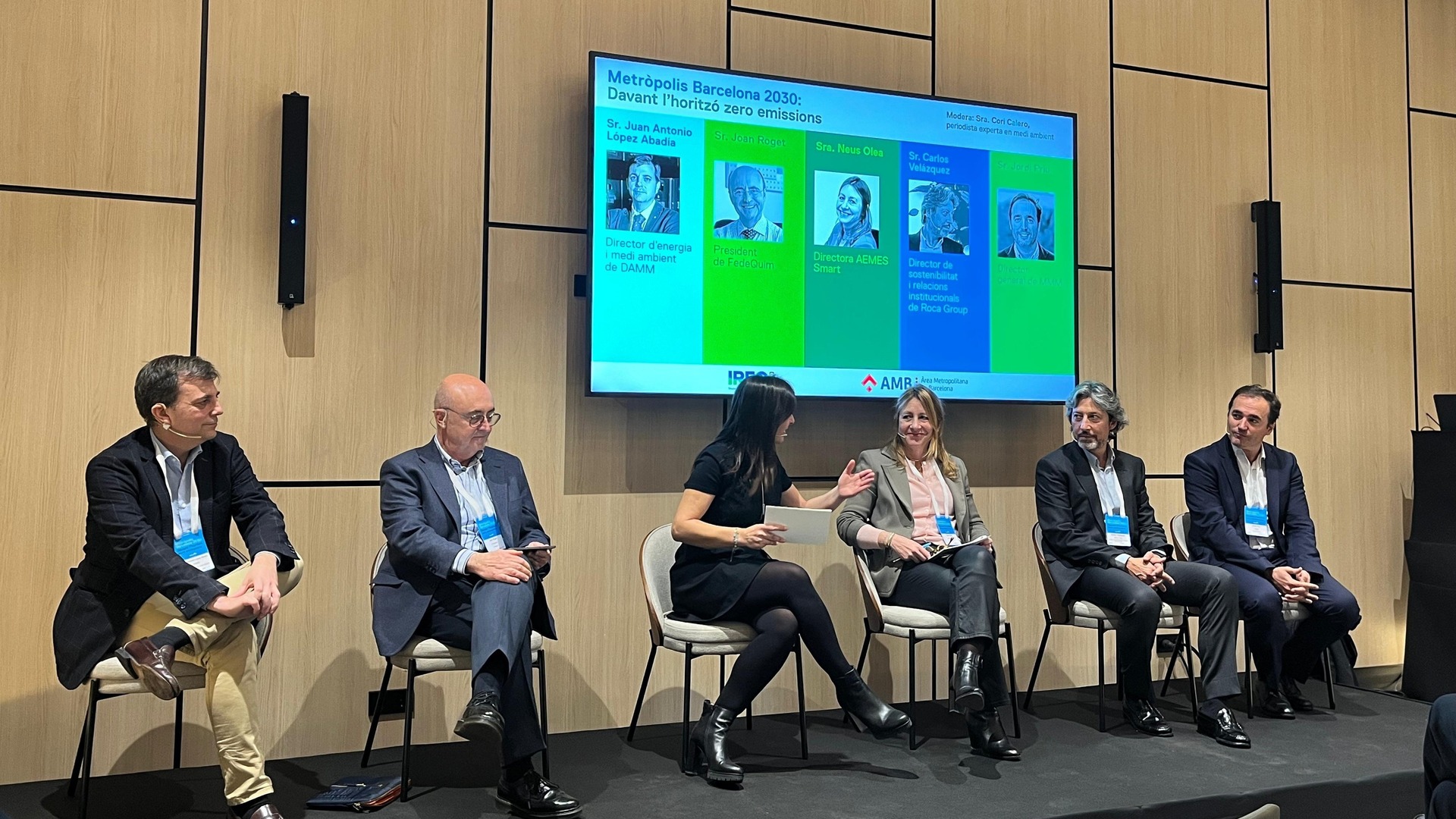Beyond the appointments of the new Minister, Sara Aagesen, and the Secretary of State for Energy, Joan Groizard, we’ve just concluded a week rich in events focused on energy management within the industry.
Fortunately, the outlook is much more promising than it was when we established Foro Industria y Energía (FIE). Back then, little attention was given to the relationship between industry and energy or the relevance of energy management in maintaining and enhancing the competitiveness of the industry amidst the ecological transition. Today, four years after the founding of FIE, we are pleased to see that the seed we planted has started to take root. It’s especially gratifying that some industry-energy events now include perspectives from the industry itself, rather than limiting discussions to the energy sector alone, as has often been the case.

From the beginning, we advocated that the decarbonization of the industry would only be possible if all stakeholders worked together: energy-consuming industries, energy generators, supporting industries, authorities, academic and research centers, and society itself. Today, we are proud to see this vision becoming a reality and to know that our efforts have contributed to this shift. Industry is now part of the conversation, and it is increasingly common to involve all relevant stakeholders. However, there is still work to be done. We must continue nurturing this foundation so that the industry—and with it, our economy—can thrive in terms of competitiveness, sustainability, and service to society.
This is why initiatives like last Wednesday’s event organized by the Barcelona Metropolitan Area (AMB) and the Institut de Recerca de Catalunya (IREC) are so valuable. The event focused on a critical topic: the relationship between industry and the metropolitan territory. This very theme will also be the focus of the next FIE meeting in April next year, titled “Energy Management of Urban Industry.”
As a preview, during the event “Metropolis Barcelona 2030: Facing the Horizon of Zero Emissions”, representatives from both the industry and municipal administration shared ideas and proposals that encourage reflection and can guide the creation of a true roadmap to help the industry navigate the path of energy transition.
Key Takeaways from the Event “Metropolis Barcelona 2030: Facing the Horizon of Zero Emissions”: Electrification and Networks: The Main Tools for Energy Management in Industry
- Urban centers like Barcelona face unique challenges that differ from those in rural areas, as pointed out by Sonsoles Letang, Director General for Climate Change and Environmental Quality of the Generalitat de Catalunya. This alone justifies FIE’s decision to dedicate its annual meeting next April to urban industry and to explore the true meaning of the concept “urban industry,” as discussed by Mayor Collboni during our previous event, Ecological Transition and Industrial Competitiveness, held in collaboration with Foment del Treball and the Consorci de la Zona Franca de Barcelona.
- “The ‘e’ in ecology is also the ‘e’ in euro,” said Jesús Lozano, President of the Barcelona Federation of Transport (Transcalit). This sentiment was echoed by nearly all industry representatives at the event. As Carlos Velázquez, Director of Sustainability and Institutional Relations at Roca, explained, decarbonization is a business case. Investments are unlikely to be approved if there is no return.
- The push for electrification in the industry is already a reality. Juan Antonio López Abadía, Director of Energy and Environment at DAMM, shared that the brewery has nearly 60,000 m² of photovoltaic panels and uses only renewable electricity. “Electrification is the closest path we currently have to decarbonize the industry,” he stated. However, the commitment goes beyond consumption. Roca’s development of the first electric tunnel kiln is a groundbreaking advancement for the sector, contributing not only to the company’s decarbonization but to that of the entire industry. This bold initiative has become a reality after four years of research and a €5 million investment.
- The Regulatory Framework Must Support the Decarbonization Process. The representative from DAMM emphasized the need for a stable regulatory framework to enable secure investments in decarbonization technologies. Similarly, Joan Roget, President of the chemical industry association FedeQuim, argued that sustainability requires accessible energy and support for the transition. “Regulation is key. While the U.S. incentivizes the transition, Europe tends to focus more on sanctions. Incentives ensure sustainable production facilities and strategic autonomy to endure challenges like the Covid-19 pandemic.”
- Electrification requires an electric supply capable of meeting the industry’s power demands. López Abadía highlighted that technologies like cogeneration, which produces heat and electricity at the same location, can help alleviate stress on the electrical grid. Letang also noted the need for well-prepared electrical networks to support the energy transition for metropolitan industries.
- Inaction Is Not an Option. Natalia Turón from SEAT stressed that inaction is perceived as a negative stance by citizens, particularly in the context of electric vehicles. Her point is applicable to all aspects of energy management within the industry.
Innovations like Roca’s electric tunnel kiln are vital, not only for the company’s decarbonization but for the entire sector. As Velázquez remarked, such contributions are key to advancing the energy transition.

